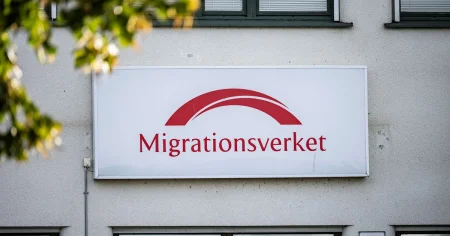In May 2023, PTL, a company focused on green energy technology, announced plans to build a large-scale anode material factory in Timrå, Sweden. This ambitious project, aimed at producing 100,000 tons of anode material annually for battery manufacturing, promised significant economic benefits for the region, including the creation of an estimated 1,900 jobs. The factory represented a major investment in Sweden’s green energy transition and held the potential to establish the country as a key player in the burgeoning battery industry. The project’s success, however, hinged on navigating the evolving regulatory landscape surrounding foreign direct investment.
A new law enacted in December 2023 mandated scrutiny of foreign investments that could potentially impact Sweden’s national security. This responsibility fell to the Inspectorate of Strategic Products (ISP). PTL proactively submitted their investment proposal to the ISP for review earlier in the year, demonstrating their commitment to transparency and compliance. However, the subsequent interaction with the ISP introduced unforeseen roadblocks that jeopardized the entire project. The ISP imposed a set of conditions that PTL deemed ”impossible” to fulfill within the given timeframe. This unexpected turn of events cast a shadow over the future of the Timrå factory and raised concerns about the balance between national security interests and attracting foreign investment.
The core of the ISP’s stipulations centered around two primary requirements. Firstly, PTL needed to secure a local Swedish partner with both relevant expertise in the battery industry and the willingness to hold majority ownership in the Swedish subsidiary. Secondly, a specific proportion of the company’s management, board, and workforce needed to be Swedish citizens. PTL argued that meeting these criteria within the tight deadlines presented insurmountable challenges. Finding a qualified Swedish partner willing to assume majority ownership within a matter of months proved an unrealistic prospect, despite PTL’s previous efforts to identify potential collaborators. Similarly, fulfilling the nationality requirements for personnel within the stipulated timeframe posed significant recruitment hurdles, especially considering the inherent difficulties of attracting skilled professionals to large-scale industrial projects in northern Sweden.
PTL’s spokesperson, Andreas Hamrin, emphasized the company’s disappointment and frustration with the ISP’s demands. He argued that finding a suitable Swedish partner with the required expertise and willingness to take on majority ownership within the short timeframe presented an impossible task. He highlighted PTL’s prior attempts to secure such partnerships, underscoring the genuine difficulty they faced. Regarding the nationality requirements for personnel, Hamrin pointed out the already challenging nature of recruiting for large green industry ventures in northern Sweden, even with global recruitment efforts. Imposing nationality restrictions further complicated this process and made it practically unattainable within the allocated timeframe.
Oscar Almén, a researcher at the Swedish Defence Research Agency specializing in Chinese foreign direct investment, offered broader context to the situation. He noted that since the implementation of the new law, other instances have arisen where the ISP imposed stringent conditions, but no investments had been outright blocked until PTL’s case. Almén suggested that investors, particularly those from China operating in sensitive sectors, are increasingly aware of these heightened scrutiny measures and might be deterred from pursuing investments in Sweden altogether. PTL’s situation represented a potentially precedent-setting case where the ISP’s demands, while not technically blocking the investment, rendered it unfeasible in practice. This raised concerns about the potential chilling effect on future foreign investment in strategically important sectors.
PTL, while disappointed with the outcome, retained the option to appeal the ISP’s decision. However, whether they would pursue this avenue remained uncertain. Hamrin stressed the company’s commitment to the project and the potential loss for Sweden if the investment were to be relocated elsewhere. He emphasized the importance of balancing national security concerns with the need to attract foreign investment in critical sectors like green energy technology. The situation highlighted the delicate balancing act facing governments as they strive to safeguard national interests while fostering economic growth through foreign investment. The outcome of PTL’s case would likely have significant implications for future foreign investments in Sweden, particularly within strategically sensitive industries.














